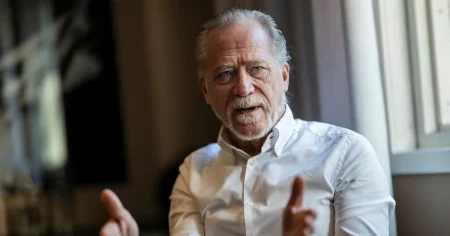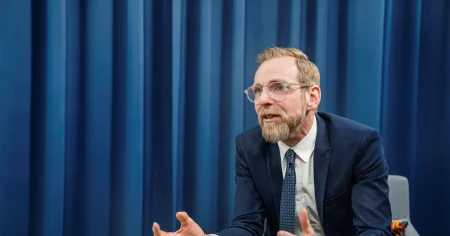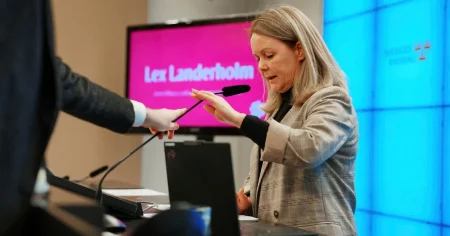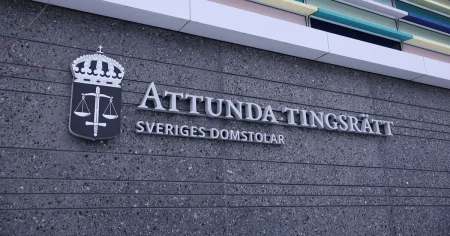In the spring of 2024, Karolinska University Hospital was embroiled in controversy following the dismissal of obstetrician Karin Pettersson, sparking protests and demands for transparency. The controversy centered around the hospital’s work environment, particularly allegations of a pervasive culture of silence and retribution. Fueling the fire was an externally commissioned review of the maternity ward, ordered a year prior by then-hospital director Björn Zoëga, which remained unreleased. Staff, many of whom had been interviewed for the review, were only provided with an oral PowerPoint presentation of the findings, never receiving a complete written report. This lack of transparency fueled suspicion and amplified calls for the report’s public release.
The situation escalated when the newspaper Dagens Nyheter (DN) began investigating the matter in February 2024. Despite repeated requests, the hospital failed to produce the report. DN subsequently reported in April that, instead of being officially registered and archived, the report had been sent to Björn Zoëga’s private residence. This revelation raised serious concerns about potential attempts to suppress the report’s findings, given its focus on a culture of silence and punishment. Only after DN’s report did the hospital finally register the document, a full year after its completion. The delayed registration and the unusual handling of the report drew significant public attention and further fueled suspicions of a cover-up.
The controversy led to a formal complaint being filed with the Justice Ombudsman (JO), alleging that Zoëga’s request to have the report sent to his home indicated an active attempt to conceal its contents from public scrutiny. The complaint argued that this action, coupled with the hospital’s resistance to releasing the document, represented a clear violation of the principle of public access to information. The JO launched an investigation to determine the validity of these allegations and assess the hospital’s handling of the report. The investigation uncovered conflicting interpretations of the report’s status within the hospital.
The JO’s investigation revealed a stark contrast in how the report was perceived within the hospital administration. Zoëga considered the various parts of the report to be incomplete working materials, not subject to official registration or public disclosure. However, in the spring of 2024, the newly appointed chairman of the board actively sought out the investigators, obtained access to the complete report, and subsequently ensured its proper registration and archiving. This discrepancy in handling further underscored the lack of clarity and transparency surrounding the report. The JO’s inquiry brought to light the internal inconsistencies and highlighted the need for clear guidelines regarding the handling of sensitive documents.
Chief Justice Ombudsman Erik Nymansson issued a sharp rebuke of Karolinska University Hospital. He emphasized that sending official documents to private residences is rarely justified and highly inappropriate, especially when there is significant public interest in their contents. Nymansson stated that such actions raise strong suspicions of attempts to circumvent the principle of public access to information, which is a cornerstone of a transparent and accountable government. He criticized Karolinska for the delay in registering the report, emphasizing the importance of timely and accurate record-keeping, particularly for documents relevant to public interest.
Nymansson also censured the hospital for its slow response to DN’s requests for the report, highlighting the legal obligation of public institutions to promptly provide access to public documents. The JO’s decision underscored the seriousness of the hospital’s actions and reinforced the principle of transparency in public administration. The case of the suppressed report served as a stark reminder of the importance of upholding the public’s right to access information, particularly when it pertains to matters of public health and safety. The controversy surrounding the report and the subsequent JO investigation cast a shadow over Karolinska, raising questions about its internal governance and commitment to transparency.














